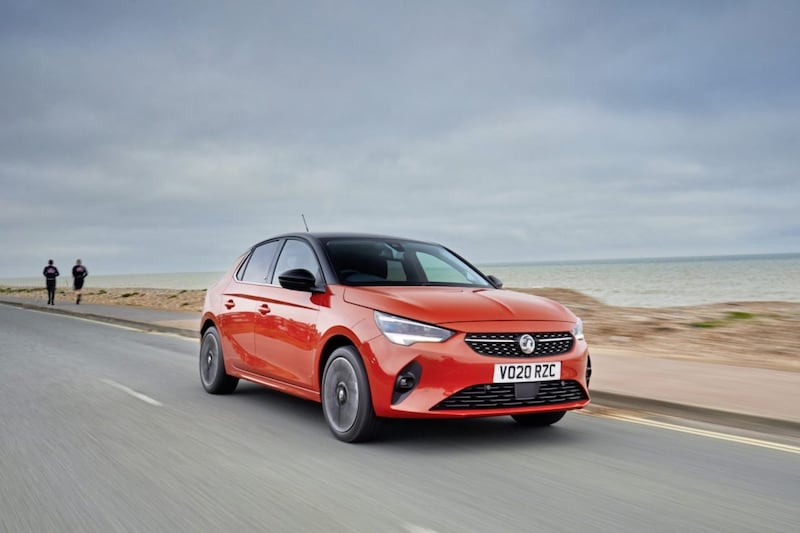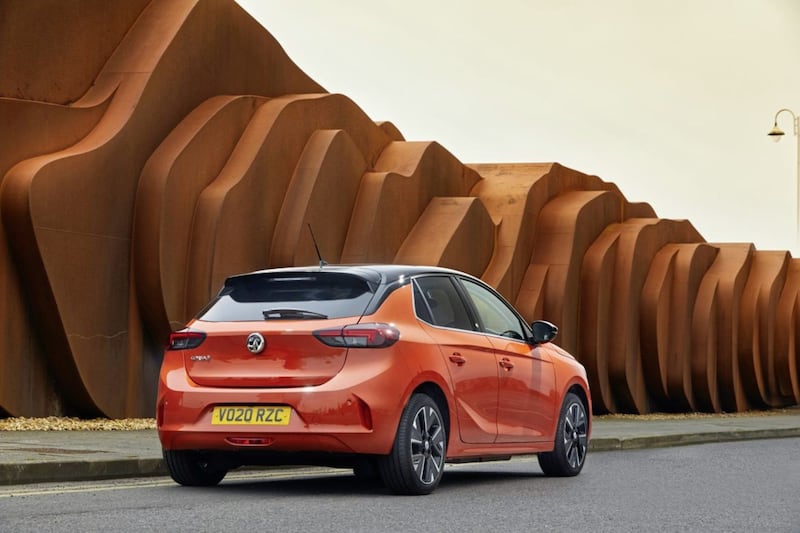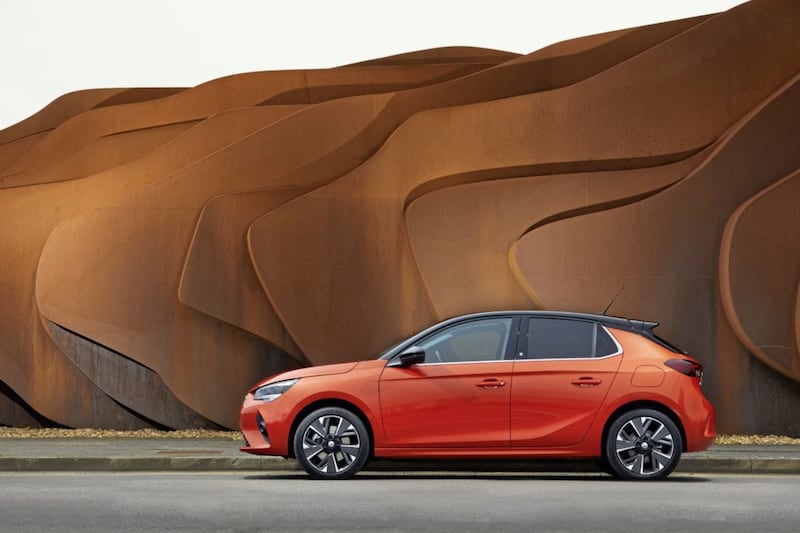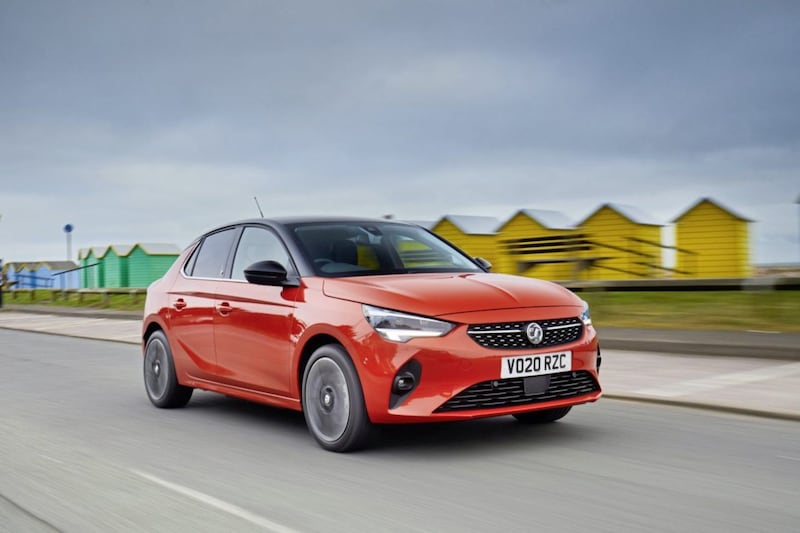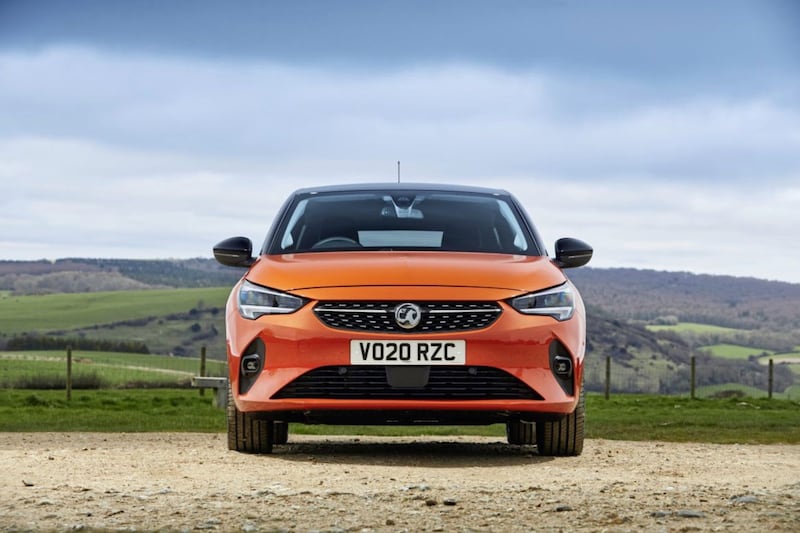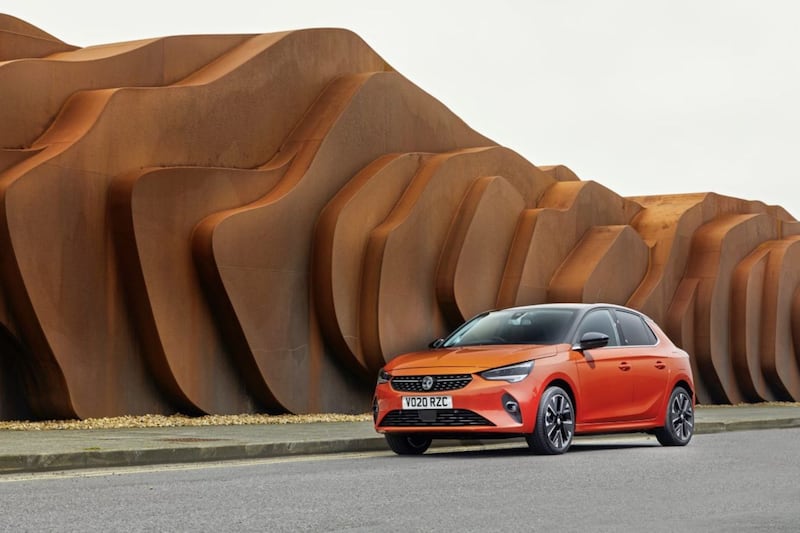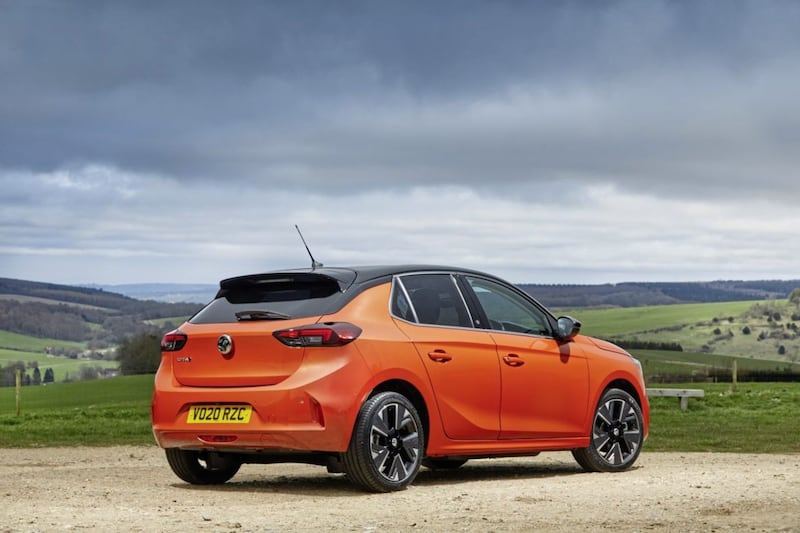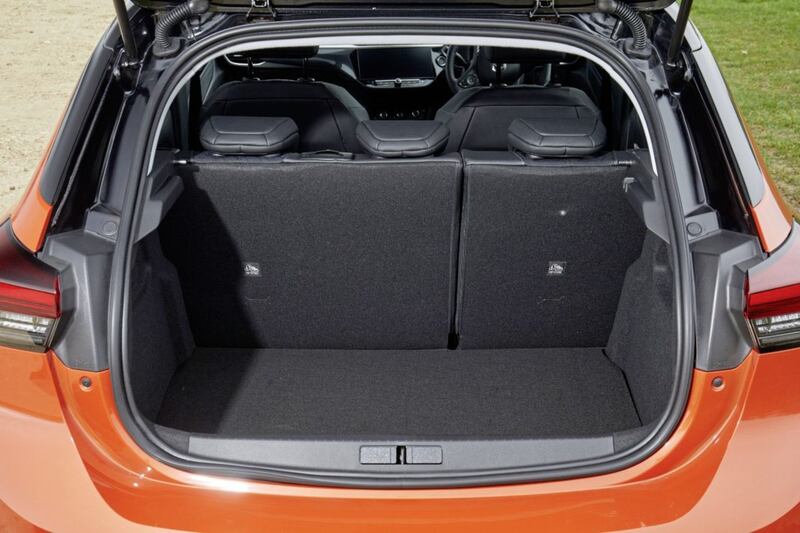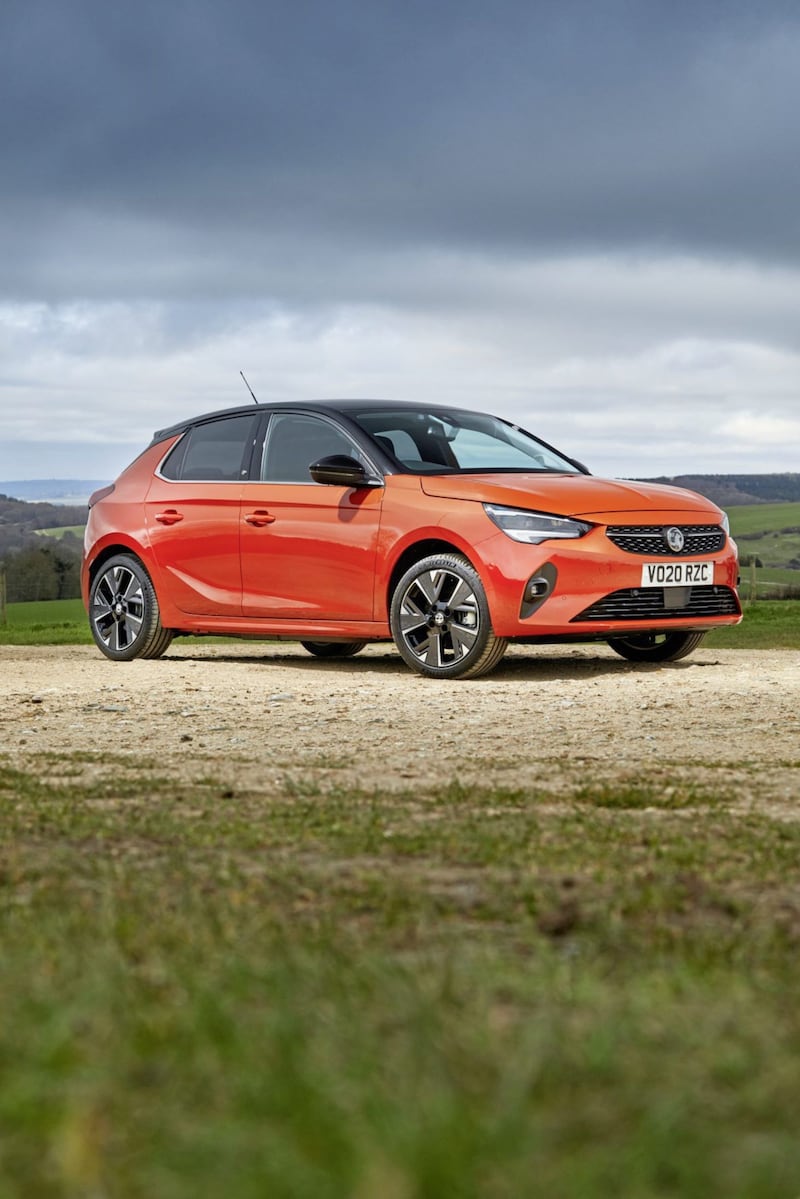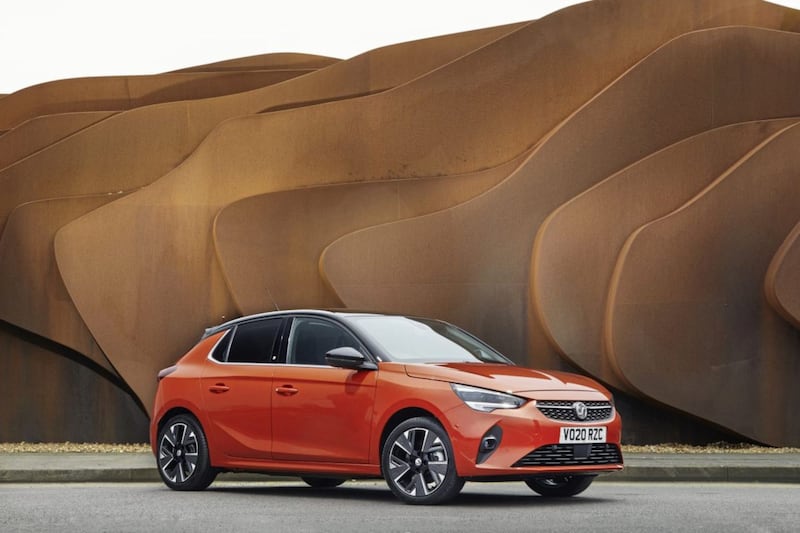THE new Vauxhall Corsa is an unlikely revolutionary, writes William Scholes.
To look at, you might not think it radical at all. Neat and modern, it appears to be a very sensible updating of a little hatchback whose various generations have been permanently anchored at the top of the sales charts for more than 30 years.
The revolution, however, lies beneath the five-door hatchback bodywork, for the Corsa can be had with battery electric power as well as the familiar petrol or diesel options.
For all the hubbub around Tesla, cars like the Vauxhall Corsa-e will be necessary if EVs, or electric vehicles, are to widen their appeal from early adopters to the mainstream.
Vauxhall is now part of the Peugeot family and the latest Corsa was developed alongside the new Peugeot 208.
The two cars share much hardware, though the French car's styling, both inside and out, has unmistakably more pizzazz.
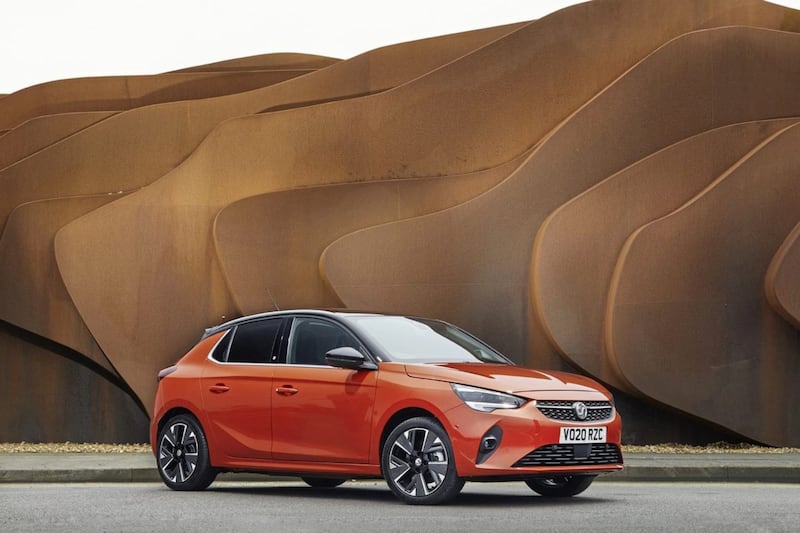
The Peugeot's showbiz looks, particularly an interior that some drivers just won't warm to, mean it is a more divisive proposition than the safe-bet Vauxhall.
That will suit Vauxhall just fine - you don't sell millions of cars in Britain and Ireland by wilfully rocking the boat.
A revolution lies beneath the five-door hatchback bodywork, for the Corsa can be had with battery electric power as well as the familiar petrol or diesel options
The electric installation is similarly well judged. The Corsa-e - the 'e' suffix, needless to say, denoting that this is the electric version - uses the same 50kWh battery pack (with a usable capacity of 46kWh) and 134bhp motor as the e-208 (Peugeot deploying the 'e' as a prefix...).
The motor is good for 191lb ft of torque. These are modest enough outputs, particularly when the battery's heft means the Corsa-e troubles the scales by an extra 345kg compared to an internal combustion-engined version, meaning this small car is a burly tonne-and-a-half.
However, because that extra weight is mounted low down, under the floor, agility isn't overly hampered. And the always-on, instant torque characteristics common to all EVs mean that the Corsa-e is nippier than the figures might suggest.
It's brisk enough, then, but the number that tends to dominate any conversation about EVs is range.
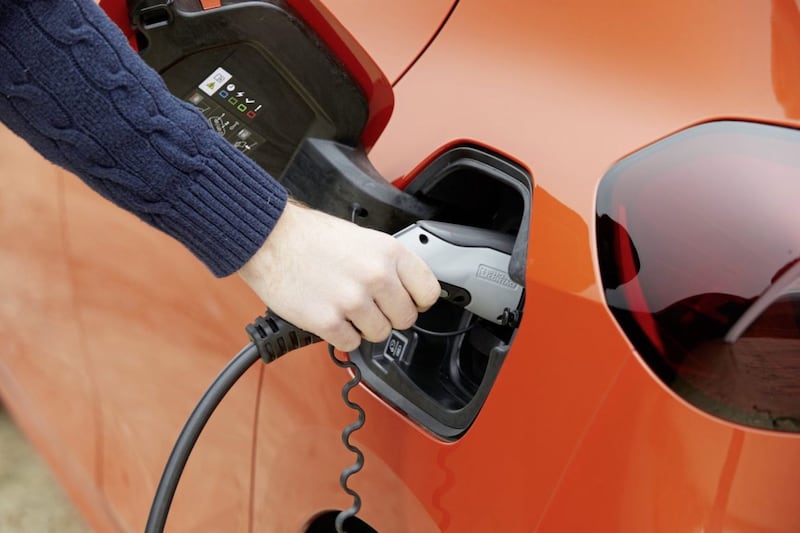
The Corsa-e is rated at being able to cover 209 miles between charges. Constant cruising speeds, temperature extremes and leaning on the car's electrical gadgets and hill are among the factors that will see that range plummet.
However, even if you are greedy with the car's battery, that ought to mean the Vauxhall has more than enough range to cope with the majority of daily driving duties.
It's certainly better endowed than some rivals, including the Honda e, electric Mini and the Mazda MX-30. Then again, it isn't as long-legged as competitors from Kia and Hyundai.
Variations in where makers have chosen to peg their EVs' range - chiefly a function of battery size and, therefore, weight - are as much to do with different philosophies as anything else.
Mazda, for example, reckon that the MX-30's range of 125 miles or so is 'just right' for most owners so didn't see the value in fitting larger batteries and adding weight to gain a little extra range that will likely be surplus to requirements.
It seems inevitable that a mix of different battery sizes and motors will eventually be offered throughout the market - the Volkswagen Group is taking this approach - but for now, you pays your money and takes your choice...
If even the Corsa, one of our most-loved and perpetually popular cars, is going electric, shouldn't we all take notice?
Putting all that together, the Vauxhall approach seems eminently sensible. Other measures to balance range and performance include a top speed limited to 93mph.
The 0-62mph time is 8.1 seconds, though EVs are far nippier than that suggests from 0-30mph, which comes in handy when scooting away from traffic lights...
Onboard charging options are 7.4kW or 11kW. On a 22kW 'quick-charger', the 7.4kW car will take five hours to charge, while the 11kW version takes just over three hours. A DC 50kW charger takes 45 minutes to boost the battery to 80 per cent capacity; a 100kW charger can cut that to 30 minutes.
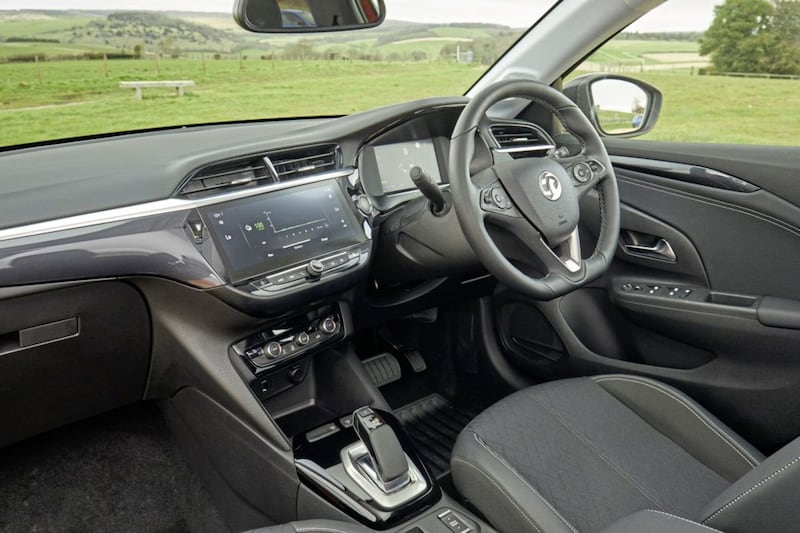
The usual caveats to finding a charger and it consistently drawing those rates apply.
A more likely scenario, perhaps, is that owners will re-juice the car from a 7kW wallbox at home - that takes seven-and-a-half hours, which makes overnight charging comfortably realistic.
As with the exterior, the Corsa carves a more conventional path than its glitzy 208 sibling. It's well laid out, with clear instruments, a pleasing sense of solidity and quality flourishes that include Audi-esque heater controls which put the temperature display inside the knob.
The back seat is as spacious as you would hope for and the boot is an adequate 267 litres.
It means that the Corsa-e is just another Corsa, albeit with a battery instead of a fuel tank and a whisper-quiet electric motor instead of a petrol or diesel engine.
The Corsa-e is priced in the same territory as just about every other small EV, apart perhaps from the MG offerings. It means the cheapest SE Nav 7.4kW version - inclusive of the government's £3,000 plug-in car grant - is £27,985 while the posher Elite Nav 11kW costs from £31,480.
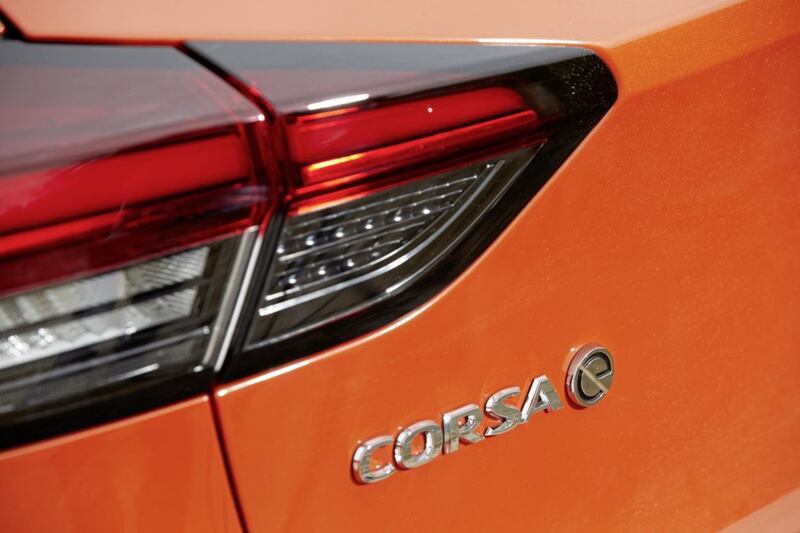
If you can live with the range and charging times, then the Corsa-e should slot painlessly into your life.
Some EVs shout about their alternative nature - BMW i3, Mazda MX-30, Honda e - and it's clear that some owners adore that.
Everyone else will warm to a 'normal' car that happen to offer electric power. The Corsa-e is that and more - it's a battery version of one of our most-loved and perpetually popular cars.
Ubiquity doesn't necessarily imply ordinariness. The Corsa-e is, in fact, extraordinary; for if even the Corsa is going electric, then shouldn't we all take notice? Vive la révolution.
